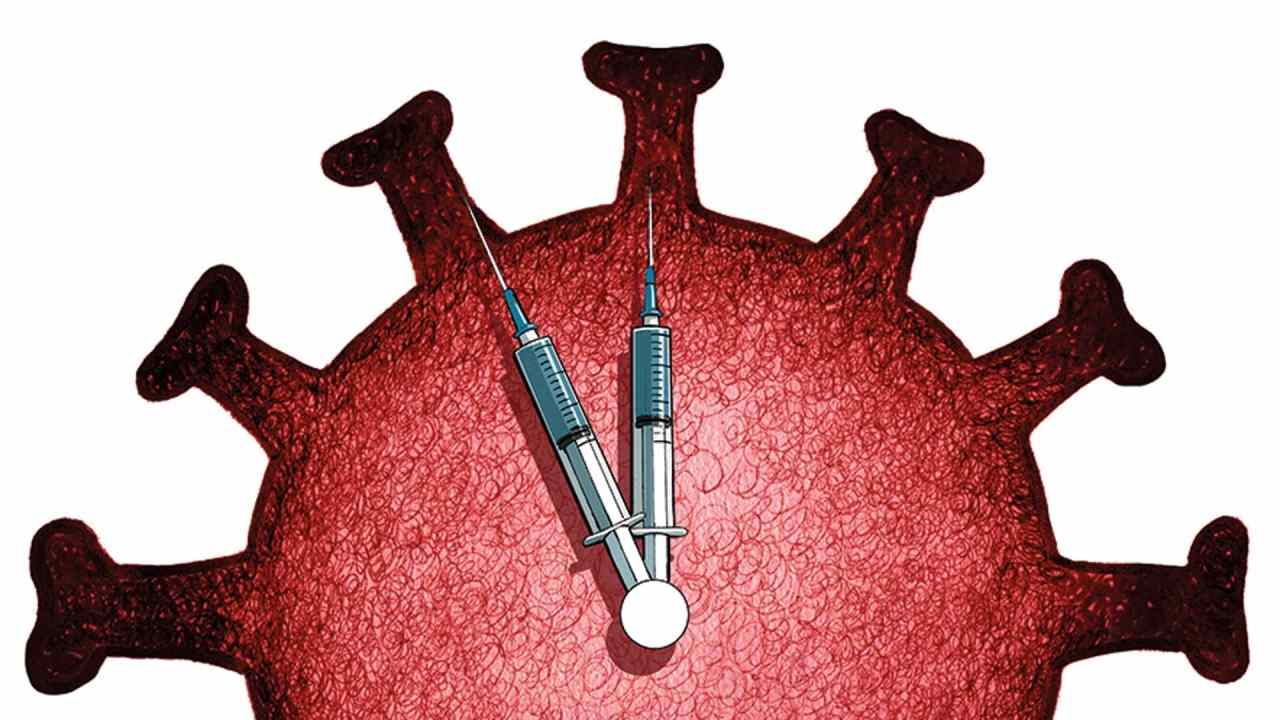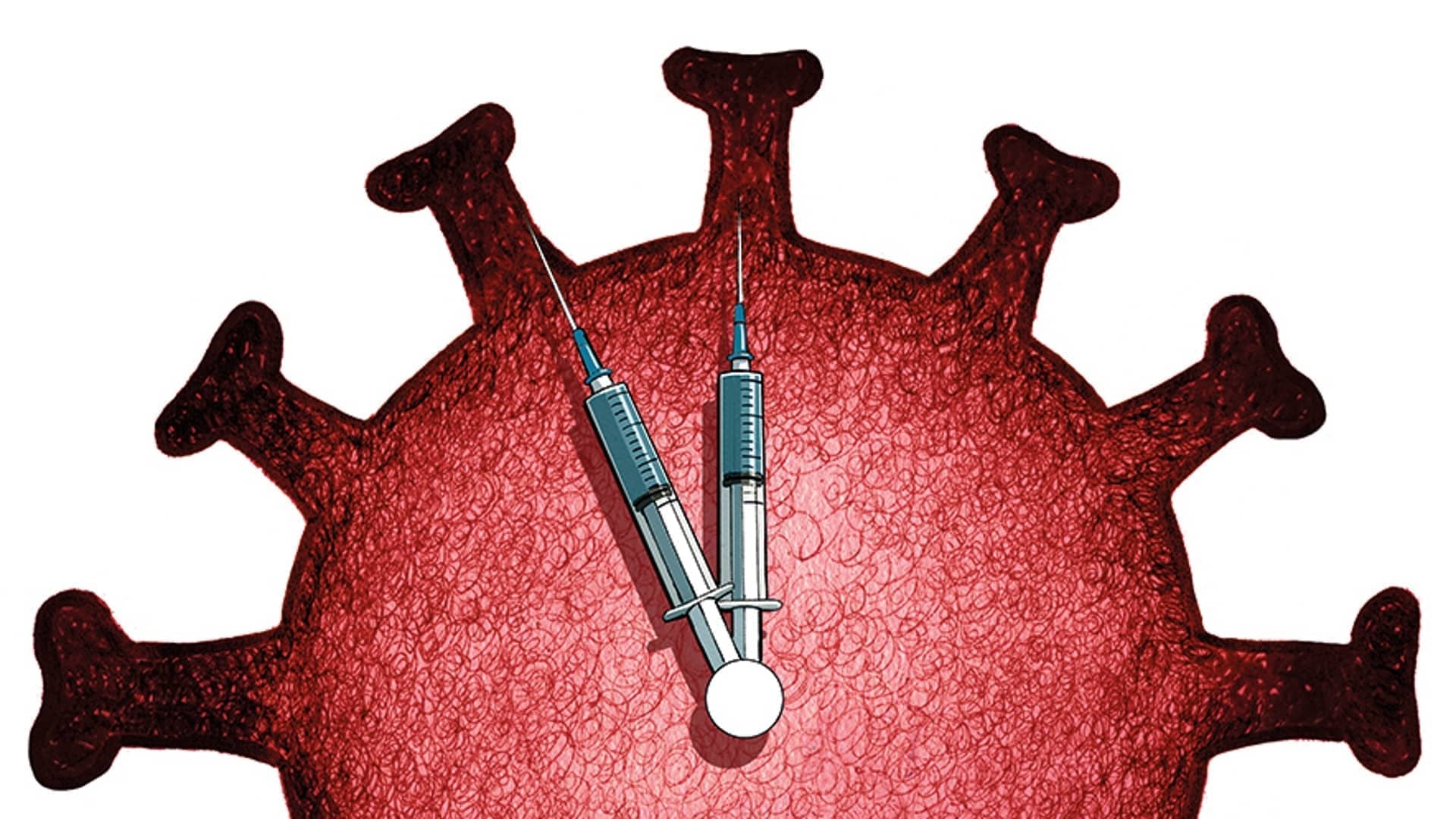Germany is the latest country to suspend the Oxford-AstraZeneca coronavirus vaccine over concerns about possible side effects. The Netherlands and Ireland have taken similar steps. So too has Denmark, Norway, Bulgaria and Iceland, while Italy and Austria have halted the use of certain batches of the drug as a precautionary measure.
Britain has done many things wrong in its handling of the pandemic, but it has done one thing well: the rollout of the jab. It’s the one place where we have useful lessons to teach the world in Covid-19. Europe, in particular, does not appear to be listening.
Vaccine programmes as ambitious as the one needed now require joined-up international co-ordination and action. These latest delays to the rollout spells bad news for Britain – and miserable news for Europe and the rest of the world.
What reasonable member of the public wouldn’t watch this and have some lingering doubts?
Fears over pulmonary emboli sparked the decisions to stop the vaccine rollouts. But this seems to be a mistake. Blood clots, while serious, are very common. This means that any association with vaccination should theoretically be relatively straightforward to prove, given the huge numbers of vaccines administered so far. And the numbers don’t point to any convincing links.
The Medicines and Healthcare products Regulatory Agency (MHRA) have not seen any uptick in blood clots in the more than 11 million doses given in Britain. AstraZeneca have even more doses in their database and say thrombosis is lower than expected. The European Medicines Agency don’t see any evidence of a connection. Nor, too, does the World Health Organisation. Ireland’s deputy chief medical officer, Ronan Glynn, has stressed there is no proof that this vaccine causes blood clots.
But despite all this pretty consistent evidence, vaccination programmes have been halted after a handful of cases. The stated reason sounds, on the face of it, sensible: safety. Surely we can’t take issue with this? In fact, shutting down programmes temporarily to assess individual events is the absolutely worst and least safe thing to do. Here’s why.
Firstly, it seems almost certain that the countries that have taken these drastic steps will soon restart their vaccination programmes. Most likely, this will happen after investigators have been unable to ‘prove’ that any single blood clot reported was caused by a vaccine. But mud sticks, and when the programme restarts, people will be more cautious about having vaccines which have so far been shown to be very safe.
What’s more, in the unlikely event that every single blood clot turns out to be conclusively caused by a vaccine, it will make absolutely no difference to the best evidence-based approach. This is because there are only two possible ‘worst case’ results to this.
The first is that there is a very small increased risk of clots that none of the extensive data has shown; or there is a rarer association with something not as simple as a blood clot. Some reports have suggested low platelet counts or even bleeding in the cases reported, so the whole picture has not yet emerged.
Yet neither of these outcomes will change the broader picture of this pandemic, nor the calibration of risk of Covid-19 versus the ‘risk’ of a vaccine. Even if a link is proven – and at the moment this seems unlikely – it will affect only a very small number of people. Many more people will become needlessly worried and may say ‘no’ to a vaccine which offers them good protection against Covid-19.
So instead of halting the vaccine programmes, European countries could have taken a different, less disruptive approach. As the MHRA has done, they could review the data, clarify if there is any clear evidence of risk and be open to updating the programme if any further information becomes available.
Why am I so exercised by this? I’ve disclosed my links to the Oxford vaccine studies before, but the reality is that the drastic approach taken by countries like the Netherlands leads to a drip, drip of safety concerns and the slowing down of vaccine rollout.
Big splashy safety headlines questioning whether vaccines are safe are followed weeks later by much smaller nothing-to-see-here articles buried in the middle pages. By then, the damage is done and the roll out in some countries is seriously compromised. What reasonable member of the public wouldn’t watch this and have some lingering doubts?
To make matters worse, stop/start roll outs will make it harder to pick up any actual real complications, which rely on accumulating evidence. The end result seems likely to be lives lost unnecessarily to Covid-19 and more time for the virus to mutate in the community.
Until there is some co-ordinated leadership from politicians and a concerted attempt for elements of the media to rein in their sensationalist instincts, we could all end up paying a big price. We may think for the moment that in the UK we are outside this particular crash looking in; in reality we are all going to be damaged by these delays.







Comments